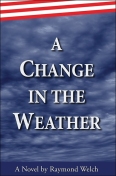I suppose we ought to find some comfort: our democracy hasn’t degraded so badly that the President deems it unnecessary to justify his right to summarily kill Americans. But this Department of Justice white paper, which undertakes that justification, doesn’t comfort me much.
The white paper is a lucid, plain-English rationalization of the necessity, if a US citizen abroad is suspected of planning an imminent terrorist attack, to dispense with the checks and balances that are the hallmark of our democracy. The President can just order him killed by drone.
The problem with engaging on something like this—that is, with reading it—is that you’re immediately within its premise, arguing with it on its own terms. Once you accede to its narrative, then the logic is hermetic. It sounds reasonable.
You have to step way back and look at its outline and what it implies for the future.
The paper’s outline bears a faint but too close a resemblance to Hitler’s Reichstag Decree and the follow-up Enabling Act to ignore.
After Hitler came to power in 1933, someone set fire to the Reichstag, the equivalent of our Capitol building. Germany had been in dire economic straits and political chaos since the end of WW1. At one point in the 1920’s people were paid twice a day because inflation halved the value of the currency hourly. Nazis were on the right, Communists on the left, and in between were lots of smaller political groups, unable to form a stable government. Riots and gang fights between political factions were common, as were assassinations and other terrorists acts.
The Reichstag fire affected Germany the way we might have been affected if the airliner that went down in Shanksburg, Pennsylvania on 9/11 had made it to Washington and plowed into the White House.
The decree, which was quickly approved by President von Hindenburg, gave Hitler emergency powers that allowed him to bypass normal parliamentary process. The Reichstag quickly sealed the deal by ceding its power to Hitler in the Enabling Act.
I hate to draw this parallel. The morons who compare Obama to Hitler, or the health care plan to Nazism, don’t know their right from their left. But the ripeness of this concept for abuse is plain. All it needs is a crisis, an ideological, unscrupulous President, and a unhealthy dose of fear.
Recall the atmosphere after 9/11. We were what the label of the perpetrators denotes: terrorized. And angry. And vengeful. Even the Democrats authorized President Bush to go to war in Iraq with very little debate. To vote otherwise would have opened a politician to insinuations of treason.
More recently, in the Credit Crisis of 2008, Secretary of the Treasury Paulsen produced a three-page edict that allowed summary powers to the executive and explicitly put the provisions of the edict itself beyond Congressional or judicial review. Fortunately in that case, congress had the nerve to step up and say wait just a minute.
Now imagine that, one summer soon, the thinned and shrunken Arctic ice cap breaks up and disappears within a couple of weeks, and triggers an abrupt climate change that devastates agriculture over the span of just a few years. The world economy would teeter. Imagine that in response to this disaster, the Third World blames the West, and launches a massive terrorist attack. It wouldn’t even have to be in this country. It could be something like blowing up the gigantic oil export facility at Ras Tanura in Saudi Arabia, which would cause an immediate energy crisis and deliver a death blow to the economy.
Imagine the psychological impact of the ice cap vanishing, the jet stream meandering wildly and altering worldwide rainfall patterns. Marry that with empty grocery shelves, gas rationing, and the fear of more terrorist attacks. It would be 9/11, the Great Depression, and 2008 credit crisis rolled into one.
Obama’s a good man. I think he agonizes about using his power to kill, and is extremely careful about confirming the targets are genuinely imminent threats. But Obama isn’t going to be in office forever. Once we accept the premise that summary assassinations by the executive are okay, once it’s part of the fabric of presidential power, it will be impossible to remove or weaken, just as it was impossible to dislodge Hitler, even though the Enabling Act had a four-year sunset. It will play into a positive feedback loop of hate and terrorism.
Imagine how we would feel if a foreign power were exploding drones in our towns. We wouldn’t listen to that power’s rationalizations that it was targeting terrorists. We’d be afraid and incensed. We’d be completely open to a demagogue who promised to set things right. We’d expect and encourage him to use his summary powers.
It doesn’t take much imagination to see that we could have our own 1950s-style Red Scare on steroids, with this policy turned on citizens in this country. If an American hacks into a power plant as an act of civil disobedience as the character Forrest does in my novel A Change in the Weather, does that make him a terrorist?
Sometimes it seems we are killing democracy by a thousand cuts in order to save it.

